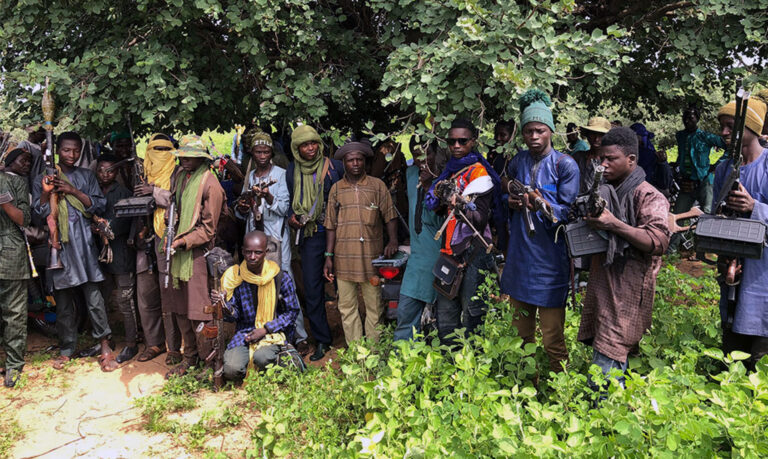
DSS Sues Pat Utomi Over Shadow Government Plot
DSS sues Pat Utomi in a controversial move that has stirred political debate across Nigeria. The Department of State Services (DSS) has filed a suit against the renowned political economist and former presidential candidate, accusing him of attempting to establish a shadow government aimed at undermining the current administration.
The suit, filed at a Federal High Court in Abuja, outlines what the DSS claims is a deliberate attempt by Pat Utomi to orchestrate parallel governance structures. According to court filings, these actions are deemed unconstitutional and intended to destabilize the existing political order.
DSS Legal Action Against Utomi
The DSS said it began investigating Pat Utomi months ago, following what it described as “alarming political activities inconsistent with the Nigerian constitution.” Intelligence reports allegedly pointed to secret meetings, coordination with foreign entities, and public statements interpreted as calls to rebellion.
DSS sues Pat Utomi based on these findings, which include speeches, documents, and meetings reportedly aimed at influencing the public to reject the legitimacy of the current government.
The suit accuses Utomi of sedition, subversion, and breach of national security statutes. It states that any attempt to run a shadow government outside the provisions of the 1999 Constitution is a serious offense.
In its official statement, the DSS claimed:
“Nigeria is a democracy guided by constitutional principles. No individual, however prominent, is above the law. Professor Utomi’s actions violate those principles.”
Pat Utomi Shadow Government Allegations
At the heart of the case is the allegation that Pat Utomi shadow government activities were coordinated under the pretext of citizen engagement and democratic advocacy. The DSS, however, interprets these efforts as calculated moves to establish alternative governance structures.
According to court documents, Pat Utomi allegedly created a body termed the “Government of the People,” which held private gatherings and published communiqués on national issues. The group reportedly issued policy proposals, political statements, and calls for international support, actions which the DSS says amount to impersonating state authority.
DSS sues Pat Utomi on the grounds that these moves not only question the legitimacy of elected officials but also create confusion among citizens and the international community.
Utomi Denies Wrongdoing
Reacting to the legal action, Professor Pat Utomi dismissed the claims as “unfounded and politically motivated.” In a press statement, he said his initiatives are rooted in promoting democratic values, citizen rights, and policy dialogue.
“I have always stood for democracy and constitutional governance. The idea that I would create a shadow government is absurd,” Utomi stated.
He argued that civic engagement should not be criminalized in a democracy, insisting that Nigeria must encourage, not punish, voices that question power.
Nonetheless, DSS sues Pat Utomi and insists that his actions crossed the line between activism and sedition. The agency says it has evidence showing deliberate plans to weaken national institutions and challenge the authority of elected leaders.
Political Implications and National Reactions
DSS sues Pat Utomi at a time of growing political tension in Nigeria. The case has triggered mixed reactions from various quarters.
Civil rights groups have expressed concern over the implications for free speech and political engagement. The Coalition for Democratic Rights issued a statement urging the courts to protect constitutional freedoms.
“This move by the DSS may silence genuine opposition voices. Nigeria must not return to the era of authoritarian rule,” the group warned.
Others support the DSS action, arguing that national security must take priority. Some government allies accused Utomi of exploiting his status to advance personal political goals under the guise of reform.
DSS Legal Action Against Utomi: What the Law Says
Legal experts say that for DSS legal action against Utomi to succeed, the agency must prove that his actions go beyond lawful advocacy and constitute an attempt to replace or challenge state authority.
Section 37 of the Nigerian Criminal Code defines sedition as any act, speech, or publication that brings the government into hatred or contempt. Subversion, on the other hand, relates to efforts to overthrow or weaken government structures.
Barrister Ngozi Umeh, a constitutional lawyer, noted:
“Running a think tank or making political statements is not illegal. But if the DSS can prove that there was an organized effort to usurp state functions, then a case of subversion could stand.”
Historical Context and Precedents
DSS sues Pat Utomi in a case that echoes past incidents in Nigerian political history. In 1993, a group of politicians formed the “National Interim Government” following the annulment of election results. That body was later disbanded by the military for operating without legal authority.
In 2011, the DSS also warned activist groups not to mimic government functions during election-related protests. The line between political dissent and threats to national security has long been debated in Nigeria’s democratic evolution.
The current case may serve as a defining moment for interpreting that boundary.
What Next?
With DSS sues Pat Utomi now in court, legal proceedings are expected to commence in the coming weeks. The former candidate has engaged a team of human rights lawyers to challenge the suit. He is expected to appear in court later this month.
The DSS has requested that the court impose travel restrictions on Utomi and some of his associates pending the outcome of the trial. They also asked for temporary suspension of all platforms linked to the alleged Pat Utomi shadow government movement.
For now, the court has not granted those requests.
Meanwhile, public debate continues, with analysts saying the case may set a precedent for how future political engagements are handled in Nigeria.




